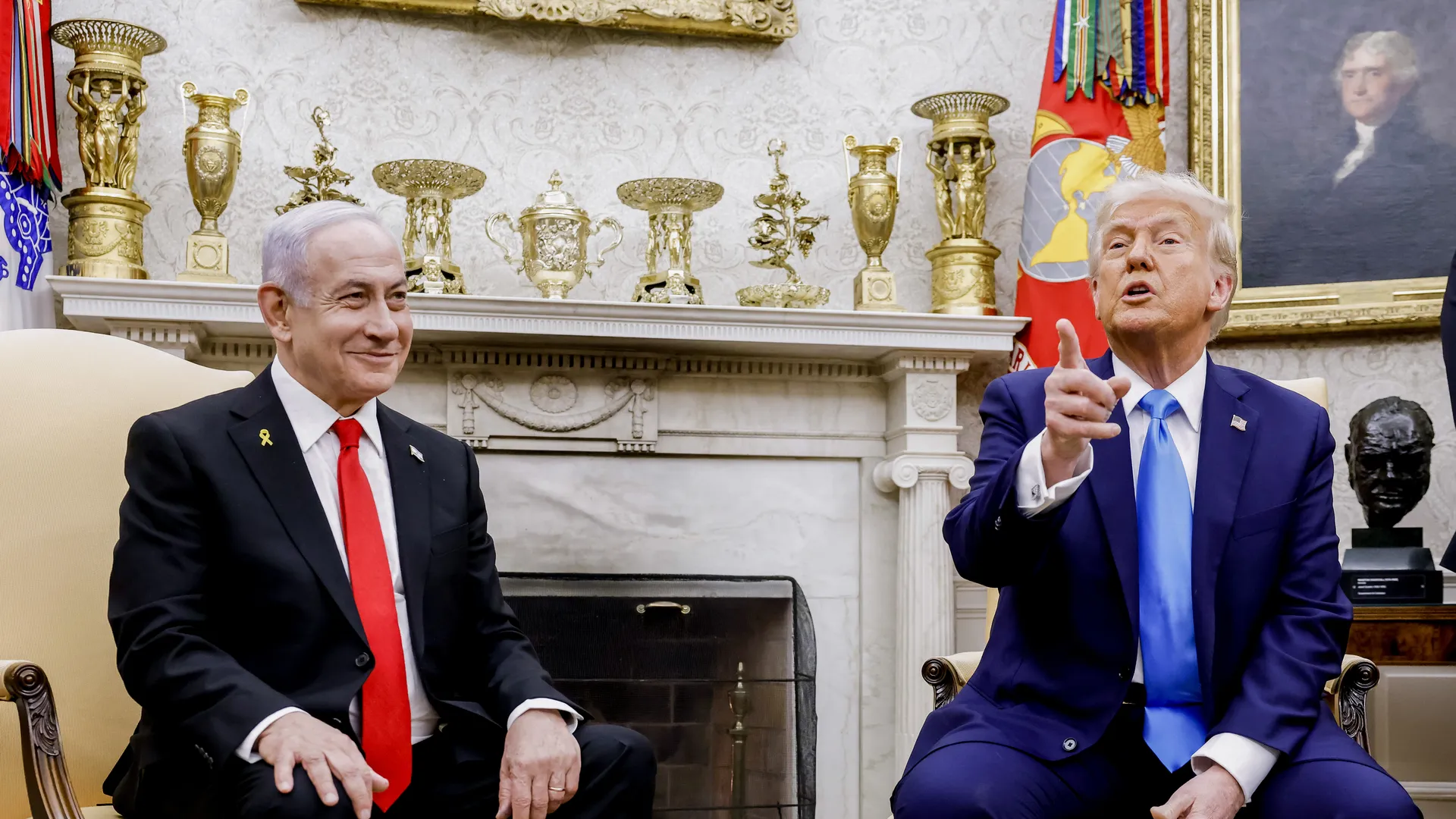
Middle East Tensions Escalate: Trump Administration Scrambles to Clarify Controversial Gaza Proposal
Global Outrage as Trump’s Gaza Takeover Plan Sparks Diplomatic Crisis
Top Trump administration officials attempted to soften President Trump’s explosive proposal to “take over” Gaza and forcibly relocate its Palestinian population, insisting that the president had not committed to deploying U.S. troops or permanently displacing residents. The plan, which sparked immediate global condemnation, was widely criticized as a violation of international law.
International Backlash and Diplomatic Chaos
President Trump’s radical proposal, unveiled during Israeli Prime Minister Benjamin Netanyahu’s visit to the White House, sent shockwaves through diplomatic circles. The initiative suggested removing nearly two million Palestinians from Gaza and transforming the war-torn region into a U.S.-controlled territory. Within hours, key American allies and global leaders voiced strong opposition, reaffirming their support for Palestinian statehood and denouncing the plan as legally indefensible.
Secretary of State Marco Rubio, speaking in Guatemala, attempted damage control, suggesting Trump merely intended to clear and rebuild Gaza, not claim indefinite control. Special envoy to the Middle East Steve Witkoff reassured Republican senators that the president had no intention of deploying U.S. forces or committing American taxpayer dollars to the venture.
Meanwhile, White House Press Secretary Karoline Leavitt stated that “the president has not committed to putting boots on the ground in Gaza.” However, she failed to clarify how the United States could enforce control over the region without military intervention.
Global Leaders Reject Trump’s Vision
The controversial proposal triggered a swift and resounding international response:
- Saudi Arabia issued a pre-dawn statement categorically rejecting the forced displacement of Palestinians, reiterating that it would not engage in diplomatic relations with Israel without an independent Palestinian state.
- Egypt warned that any recovery efforts in Gaza must occur “without the Palestinians leaving.”
- Jordan’s King Abdullah II met with Palestinian Authority leadership and vowed to oppose any forced annexation or displacement.
The proposal also complicated negotiations over an already fragile ceasefire between Israel and Hamas, jeopardizing prospects for regional stability.
Legal and Ethical Implications
Legal experts swiftly condemned the plan as a blatant violation of international law. Forced displacement is considered a war crime under international humanitarian law, and Trump’s proposal could constitute both a crime against humanity and a severe breach of the Geneva Conventions.
Palestinians inside Gaza expressed a mix of outrage and uncertainty. While many firmly rejected leaving their homeland, others admitted the destruction caused by 15 months of Israeli bombardment had left them with little choice but to consider relocation.
Israeli and Domestic Reactions
The proposal received mixed reactions in Israel. Far-right Israeli politicians praised Trump’s plan, arguing that it shattered long-standing diplomatic norms and offered a definitive solution to Hamas’s presence in Gaza. In contrast, mainstream Israeli leaders remained cautious, aware of the potential for widespread unrest and diplomatic fallout.
Domestically, Trump’s announcement blindsided even senior members of his own administration. Sources revealed that the plan was hastily conceived, with no prior consultation with the State Department or Pentagon. The Defense Department had not conducted feasibility assessments regarding troop deployment, financial costs, or the legal implications of seizing Palestinian land.
A Pattern of Controversial Foreign Policy
Trump’s Gaza proposal follows a long history of unconventional and provocative foreign policy moves. He has previously suggested that the U.S. should “take the oil” from Iraq, purchase Greenland, reclaim the Panama Canal, and even incorporate Canada as America’s 51st state. Critics argue that these ideas showcase Trump’s transactional view of global affairs, where dominance and resource extraction take precedence over diplomatic norms and legal frameworks.
Unanswered Questions and Future Uncertainty
With the administration scrambling to contain the fallout, crucial questions remain:
- How would Trump’s administration enforce control over Gaza without military intervention?
- What would happen to the two million displaced Palestinians?
- How would the proposal comply with international law?
- What impact will this have on U.S. relations with key Middle Eastern allies?
Despite the administration’s efforts to downplay the proposal, experts warn that simply floating the idea could embolden extremists, complicate hostage negotiations, and destabilize already fragile peace efforts in the region. While Trump’s team may hope the controversy fades, the international community remains on high alert, bracing for the potential consequences of this unprecedented diplomatic gamble.